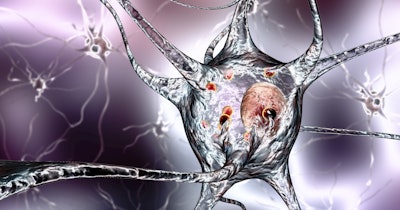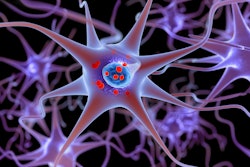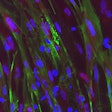
A simple skin biopsy test has shown a high accuracy rate in detecting an abnormal form of alpha-synuclein, the pathological hallmark of Parkinson's disease and other synucleinopathies, say neurologists.
Their study has raised hopes that the cutaneous method could be a reliable and convenient diagnostic tool for Parkinson's and the subgroup of neurodegenerative disorders known as synucleinopathies.
Researchers at the Harvard University-affiliated Beth Israel Deaconess Medical Center (BIDMC) have published findings in JAMA.
An estimated 2.5 million people in the U.S. are affected by the synucleinopathies, which include Parkinson's disease (PD), dementia with Lewy bodies (DLB), multiple system atrophy (MSA), and pure autonomic failure (PAF).
These progressive neurogenerative diseases have varying prognoses and don't respond to the same therapies, but they share some overlapping clinical features such as tremors and cognitive changes. They are all characterized by the presence of an abnormal protein present in the nerve fibers in the skin called phosphorylated a-synuclein (P-SYN).
"Too often patients experience delays in diagnosis or are misdiagnosed due to the complexity of these diseases," Christopher Gibbons, a professor of neurology at Harvard Medical School and a neurologist at BIDMC told the Harvard Gazette.Gibbons and colleagues co-authored the synuclein-one study, which involved 30 academic and community-based neurology practices and 428 patients of ages between 40 and 99 years.
The patients had either a clinical diagnosis of one of the four synucleinopathies (PD, DLB, MSA, or PAF) based on clinical consensus criteria and confirmed by an expert review panel, or were control participants with no history or symptoms suggestive of a synucleinopathy or neurodegenerative disease.
All participants completed detailed neurologic examinations and disease-specific questionnaires and underwent skin biopsy for detection of P-SYN. An expert review panel blinded to pathologic data determined the final participant diagnosis.
Among the participants with clinically confirmed PD, 93% demonstrated a positive skin biopsy for P-SYN. The corresponding proportions were 98.2% with MSA and 96% with DLB, while 100% of participants with PAF were positive for the abnormal protein. Among the controls 3.3% had cutaneous P-SYN detected.
"While we have been aware of the presence of alpha-synuclein in cutaneous nerves for many years, we were thrilled with the accuracy of this diagnostic test," Roy Freeman, director of the Center for Autonomic and Peripheral Nerve Disorders at BIDMC and professor of neurology at Harvard Medical School, said.
"Parkinson's disease and its subgroup of progressive neurodegenerative diseases show gradual progression, but alpha-synuclein is present in the skin even at the earliest stages," Freeman added.
Gibbons said, "With a simple, minimally invasive skin biopsy test, this blinded multicenter study demonstrated how we can more objectively identify the underlying pathology of synucleinopathies and offer better diagnostic answers and care for patients."
The researchers say that identifying a relevant biomarker and tracking its course in clinical trials is essential for drug development. They acknowledge that further research is needed in unselected clinical populations to externally validate the findings and fully characterize the potential role of skin biopsy detection of phosphorylated α-synuclein in clinical care.
The study was sponsored by the National Institutes of Health (NIH).



















